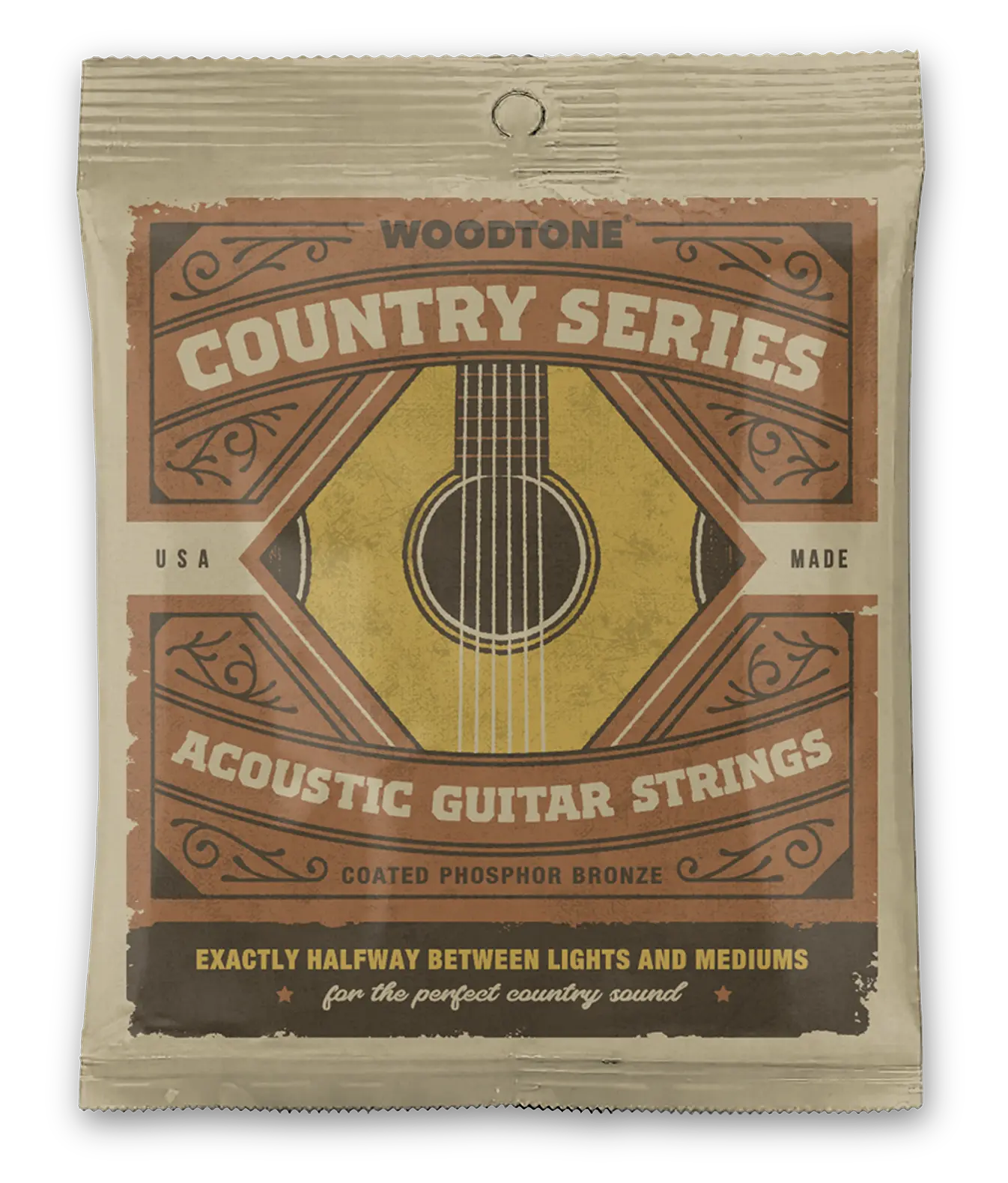Introduction
Choosing the right string gauge for your acoustic guitar is crucial for achieving the sound, playability, and overall performance that suits your preferences and style. With plenty of options available, from light to heavy gauge strings, navigating through the choices can be overwhelming for both beginners and seasoned players alike. In this article, we'll delve into the factors to consider when selecting the appropriate string gauge for your acoustic guitar.
Understanding string gauge
String gauge refers to the thickness of the strings on your acoustic guitar, typically measured in thousandths of an inch. Common string gauges range from extra-light (.010-.047) to heavy (.013-.056), with variations in between. The choice of string gauge significantly influences the tone, playability, and overall feel of your guitar. For acoustic guitar, we highly recommend our Woodtone Country Series Strings gauged at .0125-.0545. This set of strings will make your acoustic guitar easy to play and it will give you really great tone.
Factors to consider
- Playability: Lighter gauge strings exert less tension on the guitar neck, making them easier to fret and bend. They are often preferred by beginners and players who engage in extensive lead playing or intricate fingerstyle techniques. Conversely, heavier gauge strings offer greater resistance and may require more finger strength to play effectively.
- Tone and projection: The thickness of the strings directly affects the resonance and volume of your acoustic guitar. Lighter gauge strings produce a brighter and more articulate tone with less sustain, ideal for genres like folk, pop, and country. On the other hand, heavier gauge strings yield a richer, fuller sound with enhanced bass response, making them suitable for genres such as blues, bluegrass, rock, and jazz.
- Guitar setup: The choice of string gauge should complement the setup of your acoustic guitar. Lighter gauge strings are generally recommended for guitars with lower action and delicate bracing, as they exert less tension on the instrument's structure. Conversely, heavier gauge strings may be better suited for guitars with higher action and robust construction, as they provide greater stability and projection.
- Playing style and preference: Ultimately, the best string gauge for your acoustic guitar depends on your playing style, preferences, and comfort level. Experimenting with different gauges allows you to discover the perfect balance between playability, tone, and feel that resonates with your musical expression.
Two most common string gauges for acoustic guitar
The two string gauges that most players use on acoustic guitar are either Light Gauge (.012-.053) or Medium Gauge (.013-.056). Of those two options, Light Gauge (.012-.053) is probably the most common gauge used on acoustic guitar.
However...
Light Gauge (.012-.053) acoustic guitar strings are easy to play, but sometimes they sound a bit "thin". Medium Gauge (.013-.056) acoustic guitar strings have a nice rich tone, but they are harder on your fingers.
Our recommendation:
Woodtone Country Series Acoustic Guitar Strings are gauged .0125-.0545 which is exactly halfway between Lights and Mediums. They'll give you a thicker tone than Lights, but they're much easier to play than Mediums. This set of strings is also built with a custom core-to-wrap ratio to give them low string tension. Low tension acoustic guitar strings are easier on your fingers and the neck of your guitar.
Conclusion
Selecting the right string gauge is a personal decision that requires consideration of various factors such as playability, tone, guitar setup, and playing style. Whether you prefer the effortless playability of light gauge strings or the robust tone of heavier gauge strings, experimenting with different options is key to finding the perfect fit for your acoustic guitar. Remember, there is no one-size-fits-all approach, so don't hesitate to explore and discover the string gauge that inspires you to create beautiful music.



1 comment
I have been advised by luthiers to use extra light or ultralight strings on my 60 to 100-year-old instruments. Do you plan to make anything later than your current strings?
I’m also curious about lower tunings, including tuning down one step on guitar or possibly having a nut adjusted to allow me to tune down a fourth, B to B instead of E to E. I’m not sure what gauge string to use for that low B string, but assume the other five would be the lower five strings of a standard guitar set. And that the low B string might require a wider notch in the nut.
Advice?